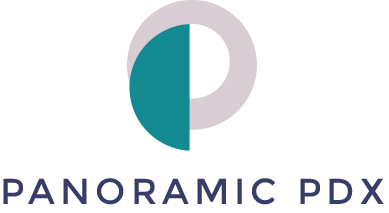
Therapy for
Career Stress
Sometimes the workplace can take a serious toll on you mentally and emotionally. Work can give you a sense of purpose and fulfillment, but what happens if you experience stressful, traumatic, or career-disrupting challenges in the workplace? All too common, work-induced stress can lead to difficulties that impact your job satisfaction and your overall sense of well-being.
Turbulent times at work can lead to mental health issues like anxiety, depression, burnout, and PTSD. A prolonged stress response at work can negatively impact emotional, physical, and behavioral health. You may experience symptoms that make working or managing personal activities difficult.
You don’t have to navigate workplace challenges on your own!
I understand that career-related trauma can profoundly affect one's well-being and sense of self. My expertise lies in addressing the emotional and psychological impacts of workplace trauma, including grief, anger, disillusionment, anxiety, depression, and despair. I am well-versed in trauma-focused interventions such as Cognitive Behavioral Therapy (CBT), Eye Movement Desensitization and Reprocessing (EMDR), Acceptance and Commitment Therapy (ACT), and Compassion Focused Therapy (CFT). My goal is to create a nurturing and empathetic space where you can openly share your experiences, address ongoing challenges, and rekindle your passion and sense of purpose.
Examples of adverse work experiences:
-
Ineffective or harmful leadership behaviors that undermine team morale and productivity, such as poor communication, lack of support, inconsistent decision-making, and unrealistic expectations.
-
Repeated, intentional behavior that harms or intimidates another person in the workplace, such as verbal abuse, threats, or undermining someone's work.
-
Chronic physical and emotional exhaustion resulting from prolonged stress, particularly in caregiving or high-demand roles, leading to reduced empathy and job satisfaction.
Learn more on my blog post From Exhaustion to Empowerment: Navigating Burnout.
-
Difficulties in generating new ideas or solutions, often resulting from stress, fatigue, or a lack of inspiration.
-
A sense of being trapped or lacking control over one's work situation, leading to frustration and diminished motivation.
-
Experiencing or witnessing racial, gender, age, or disability discrimination.
-
An environment where employees are subjected to offensive, intimidating, or abusive behaviors that affect their ability to work effectively.
-
A psychological pattern where individuals doubt their accomplishments and fear being exposed as a fraud, despite evidence of their competence.
-
Physical or mental health issues, including disability leaves of absence, resulting from or exacerbated by the workplace environment or job demands.
-
The experience of losing one’s job due to dismissal or downsizing, leading to financial instability and emotional distress. Learn more here.
-
Psychological distress resulting from actions or inactions that violate one's ethical or moral beliefs, often experienced by individuals in high-stakes professions.
-
Structural and institutional practices that perpetuate inequality and disadvantage certain groups based on factors such as race, gender, or socioeconomic status.
-
Observing unethical or illegal behavior in the workplace without being able to intervene, which can create feelings of discomfort and ethical dilemmas.
-
Reporting unethical or illegal activities within an organization, often leading to retaliation and a challenging work environment.
-
Severe or traumatic events, such as physical assaults, armed confrontations, or other violent occurrences in the workplace.
When you work with a trauma-informed career counselor, you can begin to heal from difficult work experiences and find renewed purpose in your career.
Symptoms Related to Work Stress
While everyone responds to stressors differently, a prolonged stress response at work can negatively impact your emotional, physical, and behavioral health. You may be experiencing one or more of the following symptoms:
-
Chronic stress can lead to or exacerbate anxiety, depression, burnout, PTSD, and panic disorder. Emotional responses to stress include anger, irritability, sadness, hopelessness, low self-esteem, powerlessness, worry, fear, anxiety, embarrassment, and loneliness.
-
Because chronic stress impacts physical and mental health, cognitive symptoms may be present. For example, insomnia, depression, and chronic pain could all contribute to cognitive changes such as difficulty focusing, difficulty concentrating, forgetfulness, communication challenges, disorganization, and poor judgment and decision-making.
-
Physiological conditions related to stress include fatigue, headaches, gastrointestinal (GI) upset, musculoskeletal conditions, chronic pain, insomnia, and a lowered immune system. Long-term stress can lead to health problems such as cardiovascular diseases, obesity, and diabetes.
-
Examples of behavioral changes include changes in eating habits; changes in sleep patterns; social withdrawal; lack of interest in activities; impulsive behavior; escapism behavior, decreased productivity at school or work, procrastination or work avoidance, absenteeism, and excessive smoking, drug, or alcohol abuse.
Check out my featured podcast episode on Find Your Dream Job —How to Get Unstuck When Making a Career Change.
FAQs
-
If you have had distressing work experiences, it can be a good idea to address any mental health concerns before moving forward with career planning. The career counseling process will look different for everyone, but generally, there are five phases of career counseling: intake, preparation, job search strategies, landing the job, and maintenance.
-
Find clarification about the key differences between career counselors, career coaches, and career consultants, click the link to learn more and make an informed decision!
-
Whether you are a recent graduate, a mid-career professional, or someone seeking a fresh start, hiring a career counselor can be a proactive step toward finding clarity and achieving your professional goals. Even a few strategy and planning sessions with a career counselor can help you break through internal and external barriers that are holding you back from a satisfying career. Read more on my blog.
-
Absolutely, I specialize in working with people who are making career transitions. Click to learn more.
-
It can be scary to navigate work policies on your own. If appropriate, I may be able to help you make an accommodation request to your employer or assist with a leave of absence. I have a specific protocol that I follow for work related injuries and mental health concerns that necessitates an accommodation, intermittent leave, or a leave of absence. Click to learn more.



